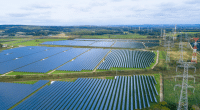The Salesian missionaries have launched a project to build 18 drinking water points in Tatale and Sunyani, two Ghanaian localities. On completion of the works, 7400 people will have easier access to drinking water.
18 drinking water supply points are being built in two towns, thanks to an initiative of Salesian missionaries, an American NGO. Eleven of these water points are located in the Sunyani region (in the mid-western part of the country), and the other 8 are in Tatale (near the border with Togo). The project will provide supplies to 4,000 and 3,430 people respectively in the two localities.
The implementation of this drinking water supply project has already resulted in about ten supply points being operational, thanks to the pump boreholes that have been developed there, as well as the water towers and reservoirs that have already been installed. Three projects included the installation of mechanised boreholes and a solar water pump, also mechanised. A project that, according to the NGO, contributes to the fight against water-related diseases. For the Director of the Salesian Missionaries, Father Mark Hyde, “improving water and sanitation facilities provides a sense of dignity for children and ensures that teachers and students work and learn in an environment that promotes good hygiene and access to clean water. This reduces the number of waterborne diseases that can affect them in our schools during school days.”
Ghana, a water-rich country where water is scarce
Ghana is one of the least water-stressed countries in sub-Saharan Africa. This is because the country is drained by the Volta Basin, the Southwest Basin and the Coastal Basin; and all three cover 70%, 22% and 8% of the country’s surface respectively. In 2011, the total surface water flow was nearly 55 billion m3. Estimates show that by 2020, water demand is expected to reach 5.13 billion m3, a figure that represents only 13% of the available surface resources. Currently, nearly 22% of the population uses untreated surface water to meet their daily water needs. As a result, it is at risk of many diseases, with 70% of diseases in Ghana linked to dirty water and poor sanitation.
Luchelle Feukeng







